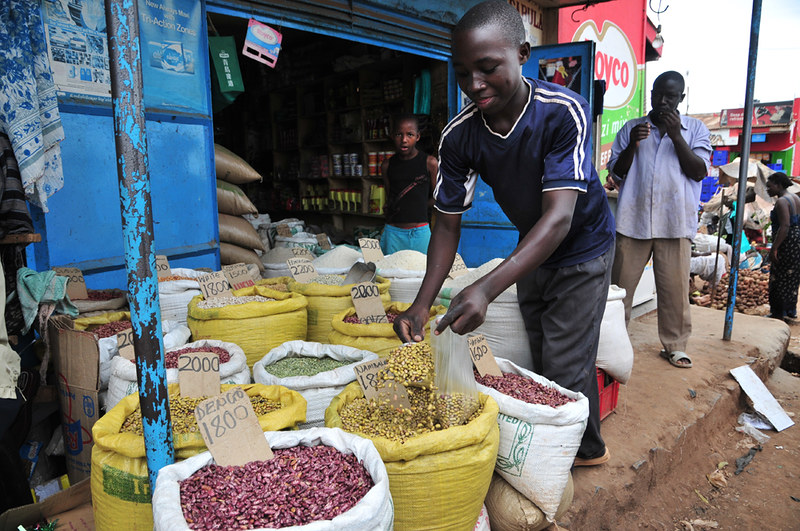Ugandans are facing increasing frustration due to the rising cost of living, which has worsened in recent months as both food and fuel prices continue to remain high in an economy where returns on investment have stagnated.
According to data from the Uganda Bureau of Statistics (Ubos), the cost of living saw an unexpected increase of 0.7 percent in September, compared to the 0.6 percent reported in August.
The primary driving force behind this increase is the inflation of monthly food crops and related items, which rose by 3.8 percent in September 2023, up from the 3.6 percent recorded in August 2023.
Ubos attributes this to the escalating prices of vegetables, tubers, plantains, cooking bananas, and pulses, which surged by 3.5 percent in September, as opposed to the 2.9 percent increase observed in August.
Some economic experts believe that heavy rains have played a significant role in this predicament by slowing down the distribution of food crops across the nation and rendering some crucial roads impassable.
The Uganda National Meteorological Authority (UNMA) predicts that the ongoing crisis may be connected to the expected second major rainfall season, as El-Niño conditions in the central and eastern tropical Pacific Ocean are anticipated to continue.
Additionally, the Indian Ocean Dipole (IOD) is expected to turn positive during this time, potentially disrupting weather and climate patterns in the region.
Ms. Madina Guloba, a senior research fellow, and head of the Microeconomics Department at the Economic Policy Research Centre, points out that adverse weather conditions are hampering even the small-scale food production in regions surrounding food baskets like Masaka and Mbale districts.
Data from Ubos reveals that the agriculture sector has experienced a significant decline in growth, from 9.3 percent in the fourth quarter of 2022 to a mere 2.1 percent in the same quarter of 2022/2023.
As a result, Uganda’s food production has been inadequate, leading to an increasing reliance on food staples from neighboring countries like Kenya and Tanzania.
Local farmers are feeling the impact as they lose income, and traders are opting to import cheaper food items rather than relying on the local market.
The consequences are far-reaching, affecting consumers by reducing their standards of living.
Economists in Uganda express concern over the prolonged nature of this crisis, emphasizing that consumers need to adapt, as the government cannot provide an immediate solution.
Issues such as unstable food production require substantial infrastructure investments that take time to roll out.
While the high cost of living is expected to stabilize in the coming months, the population is advised to tighten their budgets to cope with the ongoing situation.
Notably, the most affected consumers in September’s price changes were those of mangoes, Irish and sweet potatoes, cooking bananas, and vegetables. Prices for items like detergent powder, milk, and shoe polish also increased.
Traders have pointed out that the reopening of schools has intensified the demand for food items such as maize, rice, and beans, despite low production and government restrictions on agro-importation.
Uganda is urged to boost its food production to meet the rising demand and reduce dependence on imports.
Furthermore, the sharp increase in transportation costs between August and September, driven by rising gasoline, diesel, and kerosene prices, has added to the challenges.
The surge in liquid fuel prices has contributed to the inflation of energy, fuel, and utility (EFU) costs.
In the medium term, Uganda expects the liquid fuel crisis to subside, and the government is collaborating with neighboring countries to ensure a steady supply of fuel despite high prices.
Construction inflation in Uganda is also a concern, with input prices for specialized construction activities like electrical and plumbing on the rise. This poses additional challenges for the construction sector.
